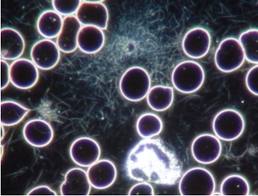Health and Healing – Your Immune System
 Unlike your respiratory system, which is uniquely defined by your airways and lungs, it may be a bit harder for you to quickly explain your immune system. That’s because it’s made up of cells and tissues throughout your whole body, along with organs and even other body systems. They all work together to do the important job of finding and ridding your body of bacteria, carcinogens, parasites, toxins and viruses that might otherwise compromise your health and healing. For something you can’t exactly point to, your immune system does quite a job of making its presence known.
Unlike your respiratory system, which is uniquely defined by your airways and lungs, it may be a bit harder for you to quickly explain your immune system. That’s because it’s made up of cells and tissues throughout your whole body, along with organs and even other body systems. They all work together to do the important job of finding and ridding your body of bacteria, carcinogens, parasites, toxins and viruses that might otherwise compromise your health and healing. For something you can’t exactly point to, your immune system does quite a job of making its presence known.
White blood cells are among the key players in the team effort that is your immune system, and they serve as your front-line of defense against invaders. Among the types hard at work, your B cells are always on the prowl, searching for foreign substances throughout your body. When they spot one (known as an antigen), they produce antibodies that mark it and alert other white blood cells to hurry to the scene to kill it and any cells that have been damaged.
And your body doesn’t forget; once you have antibodies, you have them forever. If the same antigen reappears, your body wastes no time identifying the enemy and recruiting killer cells to neutralize it. This is how immunizations prevent viruses and diseases: You introduce a small enough amount of an antigen that you don’t get sick, but a big enough amount that your body produces antibodies that will protect you against future attacks.
What Can Go Wrong Health and Healing Your Immune System
When your immune system is working at its optimal level, it wakes up and goes into attack mode when an invader like a virus or bacteria is present, but otherwise remains dormant. Unfortunately, the immune system—like others in the body—can malfunction.
Allergies and asthma, for example, are the result of an overactive immune system. Your body is so zealous to protect itself that it launches a defense even against substances—foods, dust—that can’t actually hurt you. A state of unnecessary high-alert results in chronic inflammation that can perpetuate these conditions and
contribute to others, such as arthritis, heart disease, Alzheimer’s disease and cancer.
Other times, as is the case with autoimmune disorders, the immune system attacks healthy skin, muscles, joints, blood or organs instead of legitimate threats. For example, multiple sclerosis is the immune system turning on the body and attacking myelin, the insulation that allows nerves to communicate with one another. There are more than 80 other autoimmune disorders, including Crohn’s disease, lupus, psoriasis, rheumatoid arthritis and type 1 diabetes. Scientists aren’t sure exactly why these malfunctions occur, but there seems to be a genetic connection. The good news is that there are outside influences that you can influence, too.
Protecting Your Immunity through Health and Healing
We are constantly learning more about the complicated intricacies of our immune system. While you can’t control its destiny, you can make lifestyle choices that help support healthy immunity.
